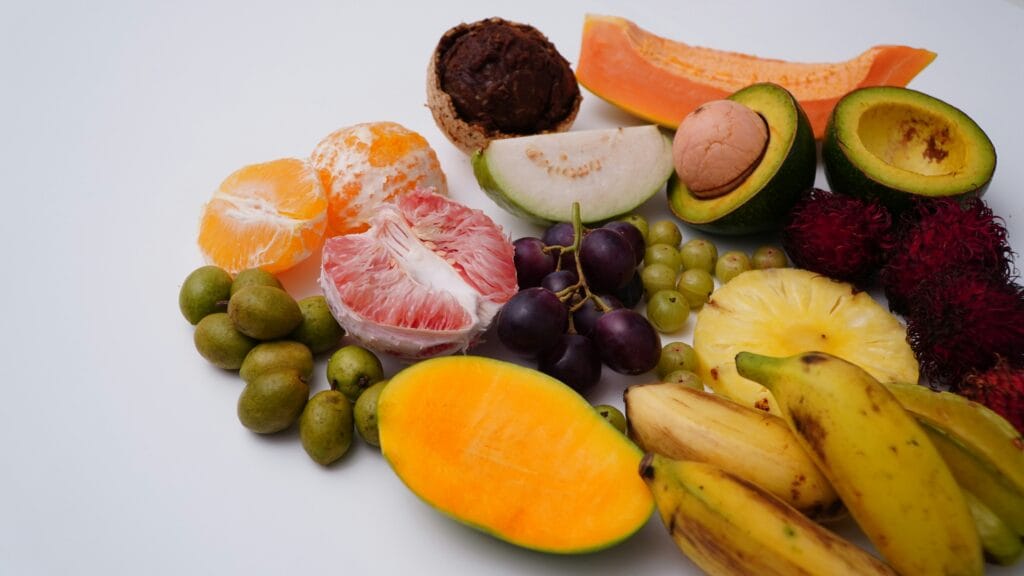Disclaimer: This content is for informational purposes only and should not replace professional medical advice.
Reclaiming Your Masculine Edge
How to boost testosterone naturally is a question every modern man should be asking. Between processed food, late-night Netflix binges, desk jobs, stress, and fluorescent office lights that make you look like a sleep-deprived raccoon, testosterone doesn’t stand much of a chance. Your body takes hit after hit, leaving you with less energy, slower recovery, and a weaker edge than nature intended.
But here’s the truth: you don’t need magic pills or questionable powders from sketchy supplement ads. The fundamentals—rooted in science, not hype—can move the needle in a big way.
This guide isn’t about “hacks” that promise overnight miracles. It’s about six essential pillars. Think of them as the core habits your ancestors practiced naturally—long before energy drinks, hormone replacement clinics, or TikTok fitness gurus with suspicious jawlines.
These steps are backed by research, sharpened with practical strategies, and yes, sprinkled with a bit of humor (because reading about hormones doesn’t have to feel like a biology textbook).
So let’s get into it. Step one is where it all begins: the food on your plate.
Step 1: Optimized Nutrition – Fueling the Hormone Factory
The Science
Your testosterone is built—quite literally—out of what you eat. Hormones are made from cholesterol and synthesized with the help of micronutrients. If your diet is a steady stream of pizza, soda, and protein bars with more chemicals than food, don’t expect your body to magically produce optimal levels of testosterone.

Research is crystal clear: diet composition directly affects testosterone. If you’re wondering how to boost testosterone naturally, nutrition is the first place to start.
-Low-fat diets consistently correlate with reduced testosterone production. Your body needs healthy fats—monounsaturated and polyunsaturated fats from sources like olive oil, avocados, and fatty fish—to synthesize hormones (ScienceDirect, 2022).
-Cholesterol, demonized for decades, is actually a precursor to testosterone. Cutting it too low is like firing all the construction workers and then wondering why no house gets built.
-Refined carbs and trans fats are linked to inflammation and insulin resistance, both enemies of healthy testosterone. One large study showed that men with insulin resistance had significantly lower testosterone compared to their metabolically healthy peers.
-Protein isn’t just for your biceps—it’s essential for hormonal balance. Amino acids from lean meats, eggs, and legumes support testosterone production.
-Smart carbs—whole grains, vegetables, and fruits—stabilize energy and keep cortisol in check, indirectly supporting testosterone.
In short: your plate is either a testosterone booster or a testosterone killer. If you want the simplest step in how to boost testosterone naturally, start with what’s on your fork.
Action Plan
– Eat 20–30% of calories from healthy fats (olive oil, nuts, avocado, salmon).
– Get 0.7–1g of protein per pound of bodyweight daily (chicken, eggs, beans, grass-fed beef).
– Choose whole carbs (fruits, vegetables, whole grains) instead of processed junk.
– Prioritize micronutrients: zinc (oysters, beef), magnesium (spinach, almonds), selenium (Brazil nuts, seafood).
– Cut ultra-processed food—it’s engineered for addiction, not nourishment.
Think of nutrition as the fuel mixture in your hormonal engine. Premium inputs create peak performance. Garbage in… well, you already know how that ends.
Step 2: Strength Training & Exercise – The Testosterone Catalyst
The Science
If testosterone had a best friend, it would be resistance training. Decades of studies confirm it: lifting heavy weights, especially with compound movements, reliably stimulates testosterone production.

Here’s why: big lifts like squats, deadlifts, and bench presses recruit large muscle groups under stress. That demand signals your endocrine system to release more testosterone and growth hormone. Your body basically says: “Oh, we’re lifting something heavy? Better call in reinforcements.”
– Resistance training → acute spikes in testosterone (especially with intensity and volume).
– HIIT (High-Intensity Interval Training) → short bursts of all-out effort followed by rest elevate testosterone.
– Excessive endurance training → raises cortisol, lowers testosterone. Great for marathons, terrible for hormonal vitality.
Higher testosterone from training correlates with more muscle, sharper cognition, better mood, and yes—higher libido. Lifting isn’t just about looking good shirtless (though that’s a bonus).
Action Plan
– Prioritize compound lifts: squats, deadlifts, bench press, overhead press, rows, pull-ups.
– Train heavy but smart: 3–5 sets of 5–8 reps, leaving 1–2 reps in the tank.
– Add HIIT: 1–2 sessions per week (20–30s sprints + rest, repeat).
– Avoid overtraining: if you’re constantly tired, sleeping poorly, and weaker, that’s cortisol sabotaging testosterone. (Springer research)
– Respect recovery: testosterone rises outside the gym—when you eat, sleep, and rest.
In short: if you want to raise testosterone naturally, your workout should look more like a powerlifter’s than a marathoner’s.
Step 3: Sleep Quality – The Foundation of Hormonal Health
The Why (The Science)
If there’s one underrated “testosterone hack” that costs nothing, it’s sleep. Forget exotic supplements and overpriced powders: your hormones are built at night.

Testosterone production follows a circadian rhythm, peaking during the early morning hours. The majority of this production happens during REM sleep. That’s why a solid night of deep, uninterrupted rest is like plugging your hormones into a full recharge.
The science is brutal:
– One study published in JAMA found that men restricted to 5 hours of sleep for a week experienced a 10–15% drop in testosterone. That’s the hormonal equivalent of fast-forwarding your biological age by a decade.
– Chronic sleep deprivation doesn’t just lower total testosterone; it disrupts luteinizing hormone (LH), the very signal that tells your testes to produce testosterone. Without LH firing properly, your T-production slows down like a factory with no manager.
– Poor sleep also ramps up cortisol, your primary stress hormone—and cortisol is testosterone’s arch-nemesis. When cortisol rises, testosterone falls.
The How (Action Plan)
– Aim for 7–9 Hours: This is the sweet spot for most men. Less than 6 hours is a red flag for hormonal decline.
– Consistency > Occasional Marathons: Going to bed and waking up at the same time every day—even weekends—keeps your circadian rhythm stable.
– Build a Pre-Sleep Routine: Wind down with a book, meditation, or light stretching. Avoid screens an hour before bed (blue light kills melatonin like kryptonite).
– Optimize the Cave: Dark, cool (60–67°F / 15–19°C), and quiet. Blackout curtains, a white noise machine, or earplugs can be game-changers.
– Cut Caffeine & Alcohol Before Bed: Coffee after 2 p.m.? Bad idea. Alcohol before bed? It might knock you out, but it shreds sleep quality.
– Morning Sunlight = Night Sleep: Getting natural light within 30 minutes of waking helps set your circadian clock, making nighttime sleep deeper.
Step 4: Stress Management – Defeating the Silent Testosterone Killer
The Why (The Science)
Stress is sneaky. You can’t always see it, but your hormones feel it. And when it comes to testosterone, chronic stress is like a slow leak in your vitality tank.

The villain here is cortisol—your body’s main stress hormone. Short-term spikes in cortisol (like during a workout) are fine, even beneficial. But chronic, day-in-day-out stress from work deadlines, financial pressure, doomscrolling, or toxic relationships? That’s hormonal sabotage.
Here’s why:
– Cortisol and testosterone share the same raw material: pregnenolone. When your body is under constant stress, it diverts pregnenolone toward cortisol production—a phenomenon called the “pregnenolone steal.” Translation: more cortisol, less testosterone.
– Studies show an inverse relationship: the higher the cortisol, the lower the testosterone.
– Stress doesn’t just lower testosterone directly. It also increases inflammation, disrupts sleep, and contributes to weight gain—all factors that further depress testosterone.
The How (Action Plan)
– Identify the Triggers: Work emails at midnight? Too much social media? Certain people who drain your energy? Step one is knowing what fuels your stress.
– Meditation & Breathing: Even 10 minutes of mindfulness, deep breathing, or guided meditation lowers cortisol. It’s like hitting “reset” on your nervous system.
– Move Your Body (Smartly): Exercise is one of the most effective ways in how to boost testosterone naturally, since it burns through stress hormones—but don’t overdo it. A brisk walk, yoga, or even a light jog helps keep cortisol in check.
– Protect Your Downtime: Schedule time for hobbies, fun, and true rest. If your calendar only has “work,” you’re doing it wrong.
– Social Connection: Strong friendships buffer against stress, and positive relationships are underrated when it comes to how to boost testosterone naturally. A night laughing with friends can lower cortisol better than any supplement.
– Adaptogens (Optional): Herbs like ashwagandha have shown promise in lowering cortisol and supporting testosterone. They’re not magic bullets, but they can help when paired with lifestyle changes.
Step 5: Sunlight, Vitamin D, and the Power Minerals (Zinc & Magnesium)
The Why (The Science)
Imagine your hormones as a construction site. Testosterone is the building. Sleep and training are the blueprints. Nutrition is the fuel. But without sunlight and key minerals, the whole project stalls—because you don’t have the raw materials or the right tools.

Here’s what the science says:
Vitamin D – The Sunshine Hormone
– Vitamin D isn’t just a vitamin; it functions like a hormone.
– Receptors for Vitamin D are found in the testes, directly linking it to testosterone synthesis.
– Men deficient in Vitamin D often have lower testosterone. One clinical trial showed supplementation raised both total and free testosterone levels, making it a key step in how to boost testosterone naturally.
– Deficiency is widespread (especially for men indoors all day, or living in northern latitudes).
Zinc – The Spark Plug
– Zinc is essential for the enzymes that produce testosterone.
– Even mild deficiency lowers testosterone significantly.
– Oysters are basically nature’s testosterone multivitamin—they’re the richest natural source of zinc, and a prime example of how to boost testosterone naturally through diet.
Magnesium – The Gatekeeper
– Magnesium plays a role in over 300 biochemical reactions.
– In terms of testosterone, it’s important because it reduces binding to SHBG (sex hormone–binding globulin). That means more free testosterone—the form your body can actually use.
– One study showed that men who supplemented magnesium while exercising saw higher increases in testosterone compared to exercise alone.
Sun Exposure Beyond Vitamin D
– Emerging evidence suggests sunlight does more than just raise Vitamin D.
– UV exposure can trigger nitric oxide production in the skin, which improves blood flow and supports testicular function.
– Sunlight also regulates circadian rhythms, improving sleep—which we already know is crucial for testosterone.
The How (Action Plan)
– Get Direct Sunlight: Aim for 10–30 minutes of direct sun on large skin areas (arms, chest, legs) several times per week.
– Vitamin D Supplementation: If you’re indoors most of the time or live in a low-sunlight region, consider D3 supplements (2,000–5,000 IU daily is common, but test levels to personalize). Pair with Vitamin K2 for balance.
– Eat Zinc-Rich Foods: Oysters, beef, poultry, pumpkin seeds, beans. (ScienceDirect, 2021)
– Boost Magnesium Intake: Spinach, almonds, dark chocolate, legumes. Magnesium glycinate or citrate supplements are well-absorbed options if diet falls short.
– Combine Sun + Movement: Go for a morning walk or outdoor workout.
– Mind the Balance: Too much zinc can deplete copper. Too much sun without care equals burns, not benefits.
—
Step 6: Gut Health – Your Second Brain’s Hormonal Influence
The Why (The Science)
Your gut isn’t just about digestion. It’s home to trillions of microorganisms—the gut microbiome—that communicate with your immune system, brain, and yes, your testicles. Researchers call this the “gut–testis axis.”

Here’s what’s going on under the hood:
– Certain gut bacteria produce an enzyme called beta-glucuronidase, which can reactivate hormones (including testosterone) that the liver had tagged for removal. With the right gut balance, more active testosterone stays in circulation.
– A healthy gut lining keeps toxins and inflammatory compounds from leaking into the bloodstream. When that barrier weakens (“leaky gut”), systemic inflammation rises, which sabotages testosterone production.
– Gut health influences nutrient absorption. You could eat all the zinc, magnesium, and protein in the world, but if your gut isn’t absorbing them efficiently, it blocks how to boost testosterone naturally through diet.
-In short: your gut is not just a sewer system—it’s part of your hormonal command center, and optimizing it is crucial if you want to learn how to boost testosterone naturally.
The How (Action Plan)
– Feed the Microbiome: Diverse fiber-rich foods—vegetables, fruits, legumes, whole grains.
– Fermented Foods: Sauerkraut, kimchi, kefir, unsweetened yogurt.
– Cut the Junk: Ultra-processed foods and artificial sweeteners disrupt gut flora and promote inflammation.
– Stay Hydrated: Water supports digestion and keeps the microbiome environment healthy.
– Manage Stress: Chronic stress hurts your gut just as much as your hormones.
– Consider Supplements (if needed): Probiotic and prebiotic supplements can help, but they’re secondary to diet.
—
The Long Game of Masculine Vitality
There’s no magic bullet, no single food, exercise, or supplement that will skyrocket your testosterone overnight. And honestly—that’s a good thing. Quick fixes usually fade just as quickly.
The real path is built on the six pillars we just covered:
1. Nutrition – the fuel.
2. Strength Training – the trigger.
3. Sleep – the foundation.
4. Stress Management – the protector.
5. Sunlight, Vitamin D, Zinc & Magnesium – the raw materials.
6. Gut Health – the regulator.
Each one works in concert. Improve just one, and you’ll feel a difference. Improve several, and the effects compound—this is the real blueprint for anyone searching how to boost testosterone naturally.
And while testosterone is often talked about in terms of muscle or libido, it’s bigger than that. It’s about energy, drive, mental clarity, resilience—the stuff that makes you feel sharp, capable, and alive.
So here’s the honest takeaway:
– You don’t need gimmicks.
– You don’t need to chase every trend.
– You just need to consistently give your body what it biologically craves: good food, movement, sleep, recovery, sun, and balance.
Do that, and your testosterone—and your vitality—will take care of themselves. It’s the simplest truth about how to boost testosterone naturally.
No hype. No shortcuts. Just science, applied daily.
If this post saved you time, money, or prevented questionable life choices… you can tip below.
This article is for informational purposes only and is not a substitute for professional medical advice, diagnosis, or treatment. Always consult a qualified healthcare provider before making any decisions about your health or starting a new regimen.

